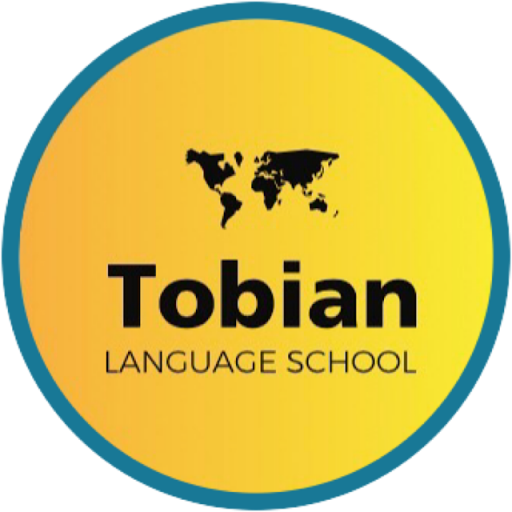How Many People Speak Luxembourgish?
A Deep Dive into Luxembourg and Its Unique Language
- October 24, 2024
- By Tobias Woudt
Luxembourgish (Lëtzebuergesch) is the national language of Luxembourg, a small but highly influential country in Europe.
Despite being spoken by a relatively small number of people, Luxembourgish plays an essential role in the cultural and national identity of Luxembourg.
In this article we will be asking and exploring how many people speak Luxembourgish globally, primarily in Luxembourg but also in surrounding regions of Belgium, France, and Germany.

Table of Content
Introduction
A Glimpse Into Luxembourg
Luxembourg is one of the smallest countries in Europe, bordered by Belgium, France, and Germany. Known for its multiculturalism and being a financial hub, Luxembourg also holds a prominent position in the European Union.
In fact, Luxembourg is one of the three official capitals of the EU, home to several EU institutions.
The country has a rich history of political and economic significance and is known for its quality of life and international population, with over 40% of residents being foreign nationals.
Luxembourg is a trilingual country with Luxembourgish, French, and German as its official languages. While French is typically used for administrative purposes and German for the media, Luxembourgish holds a special place as the language of everyday communication for Luxembourgers.
The History of Luxembourgish
Luxembourgish is a West Germanic language, closely related to German and Dutch.
Its roots trace back to the Moselle Franconian dialect, spoken in the region of the Moselle River. Despite its similarities to German, Luxembourgish has developed its own distinct vocabulary, grammar, and expressions over the centuries. It officially became the national language of Luxembourg in 1984, solidifying its status as a symbol of national pride and identity.
Luxembourgish has seen a revival in recent years, particularly as part of the inburgering (integration) process, where non-native residents are encouraged to learn the language to better integrate into Luxembourgish society.

Why Do People Want to Learn Luxembourgish?
Learning Luxembourgish has become increasingly important for several reasons:
1. Integration and Citizenship:
Luxembourgish is essential for those seeking Luxembourgish nationality. Passing the Sproochentest, a language test that measures proficiency in Luxembourgish, is a key requirement for naturalization. The test typically requires A2-level speaking and B1-level listening skills, according to the Common European Framework of Reference (CEFR).
2. Cultural and Social Integration:
For foreign nationals living in Luxembourg, learning Luxembourgish opens doors to deeper integration into the local community.
It allows for meaningful communication with native Luxembourgers and a better understanding of the country’s culture and traditions.
3. Professional Opportunities:
Many jobs in Luxembourg, particularly in government, healthcare, and education, require proficiency in Luxembourgish. Having this language skill can also set you apart in industries where communication with local clients is crucial.
4. Preserving Identity:
For Luxembourgers, the language is a matter of cultural identity. Learning Luxembourgish is seen as a way to maintain the country’s linguistic heritage and promote unity within the nation.

How Many People Speak Luxembourgish?
As of today, around 400,000 people speak Luxembourgish, with most speakers residing in Luxembourg. Given the country’s small population, this makes Luxembourgish a minority language in global terms.
However, the language is a source of national pride and has seen steady growth, particularly with the increased emphasis on integration programs for immigrants.
Beyond Luxembourg, small Luxembourgish-speaking communities exist in parts of Belgium, France, and Germany, where cross-border interactions have historically been common.
Examples of Luxembourgish Words and Phrases
Here are a few examples of common Luxembourgish words and phrases:
– Moien – Hello
– Wéi geet et? – How are you?
– Ech hunn dech gär – I love you
– Merci – Thank you (Luxembourgish has adopted some French words)
– Wat ass däi Numm? – What is your name?
– Ech wëll Lëtzebuergesch léieren – I want to learn Luxembourgish
Learning Luxembourgish involves grasping its unique sounds and grammatical rules, but it also includes an exposure to many words borrowed from French and German, which adds an interesting layer of complexity for learners.
Famous People Who Speak Luxembourgish
Many prominent Luxembourgers are proud speakers of Luxembourgish, including:
Grand Duke Henri of Luxembourg: As the head of state, he speaks Luxembourgish fluently, along with French, German, and English.
Xavier Bettel: The current Prime Minister of Luxembourg, Bettel is known for his engaging and accessible communication, often switching between Luxembourgish, French, and German during speeches and interviews.
Josy Braun: A famous Luxembourgish writer and poet who contributed greatly to Luxembourgish literature.
These figures, along with many others, use Luxembourgish as a way of preserving the country’s linguistic heritage and expressing national pride.
Learning Luxembourgish at Tobian Language School

At Tobian Language School, we offer comprehensive Luxembourgish courses designed to meet your language goals, whether you’re learning for integration, work, or personal interest.
Our courses are structured according to the CEFR framework, covering levels A1 to C1, and are taught by experienced Luxembourgish teachers who are passionate about helping you succeed.
What’s Included in Our Luxembourgish Courses:
Personalized Learning Plans: Tailored to your needs, whether you’re preparing for the Sproochentest or looking to improve conversational skills.
Small Group or Private Lessons: Flexible options to suit your learning style.
Access to Study Materials: We provide all the resources you need to succeed, from grammar books to interactive online tools.
Flexible Scheduling: Learn Luxembourgish at your own pace, with the convenience of online classes.
Conclusion: How Many People Speak Luxembourgish?
Whether you’re a complete beginner or looking to refine your Luxembourgish skills, Tobian Language School is here to support you every step of the way.
Join our Luxembourgish courses today and become part of Luxembourg’s rich cultural and linguistic heritage!

Tobias is a polyglot, traveller and founder of the Tobian Language School.
